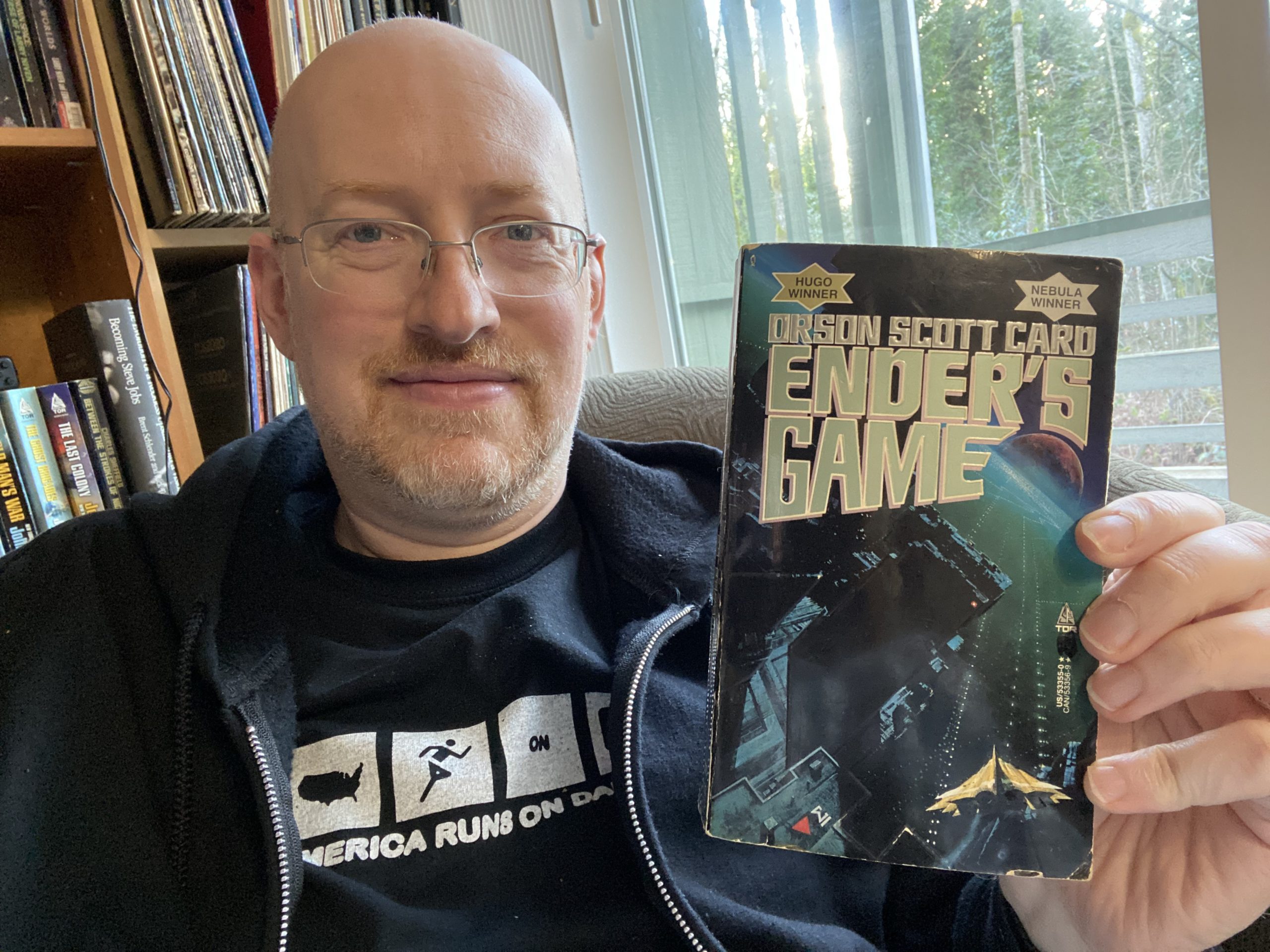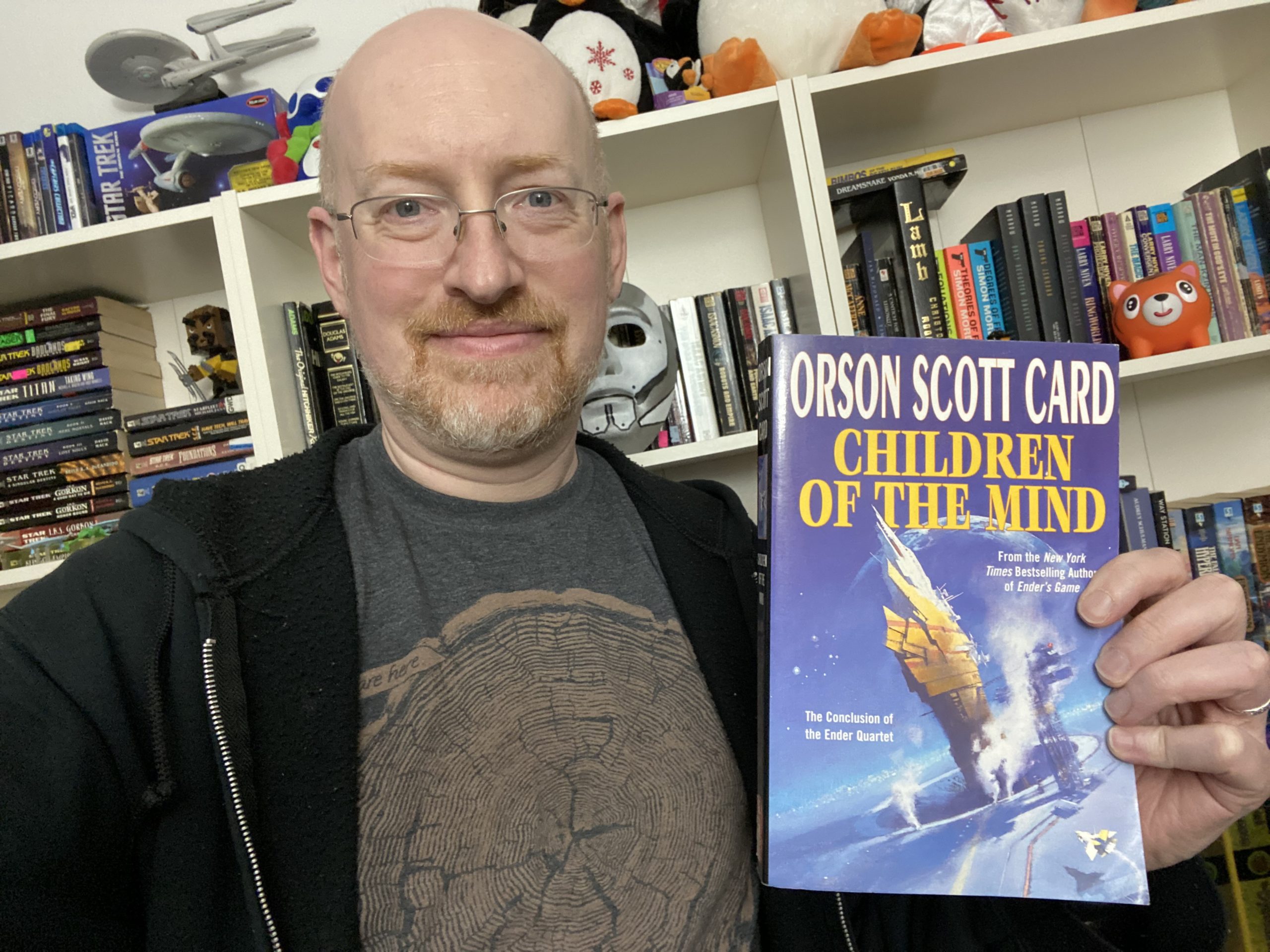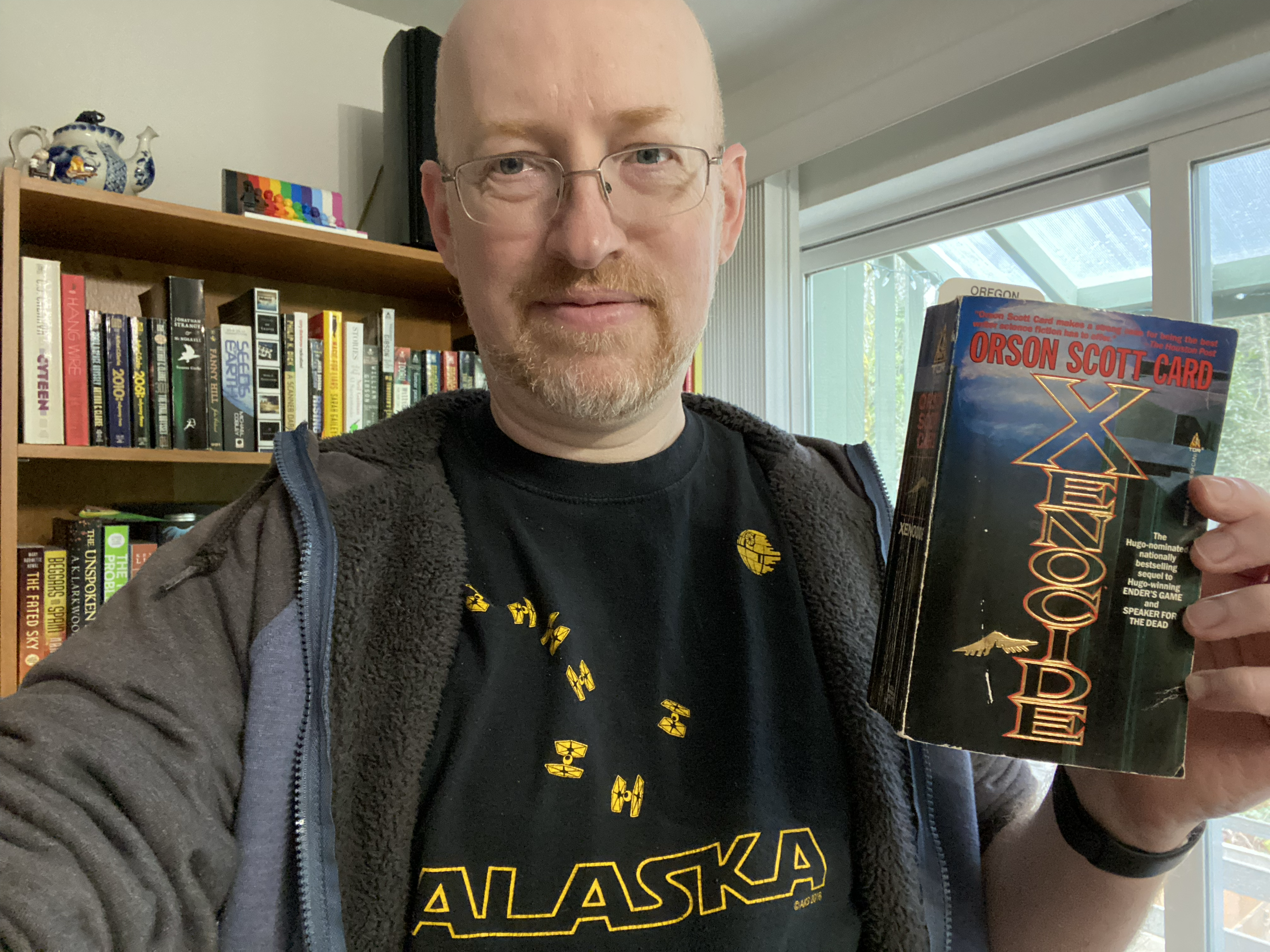5/2023 – ⭐️⭐️⭐️⭐️
It had been long enough since I’d last read this that I only remembered the broad strokes: Ender’s training, the zero-G battles, the simulations, the revelation after his final exam, and a few misty bits and pieces about the fantasy game he explores on his computer. But the threads with his brother and sister and, somewhat amusingly (where was my brain when I read this before?), the entire final chapter where Ender explores the colony world, were almost as new to me as if was my first time reading them.
The parts I remembered were as fun (in their way) as I remembered: the zero-G team combat games and their techniques and strategies, all while watching as Ender is manipulated and molded into what they need him to be. The political maneuvering of his brother and sister were interesting, and in some ways reminded me uncomfortably of the modern world, and in ways that wouldn’t have resonated quite so much when the book was published in ‘85. Now, instead of Valentine and Peter posting to discussion forums on their “nets” to influence politics, we have Qanon and Twitter on our Internet. At a few points, it was more than a little disturbingly prescient. (Plus other little details, like Ender’s “desk” where he can read, learn, program, communicate, and play games — basically, an iPad.)
While it’s perhaps a bit too militaristic to be a five-star read for me, it’s still an excellent book, well worthy of the awards it got, and I’m looking forward to reading more in the series (which I’ve never done before).
ADDED NOTE: It should be noted that OSC had long held and promoted viewpoints that I vehemently disagree with. The books of his in my collection were purchased before I knew of his standpoints, from secondhand stores, or both. I knew going into my Hugo reading project that there would authors and works I would find problematic, and that there might be situations (like this one) where I enjoyed a work by a problematic author. I do what I can to mitigate those situations by purchasing used copies of books so as not to directly contribute to those problematic authors who are still with us, and by noting when I run into those situations – like here (and again down the road, as one of JKR’s HP books also won a Hugo).




